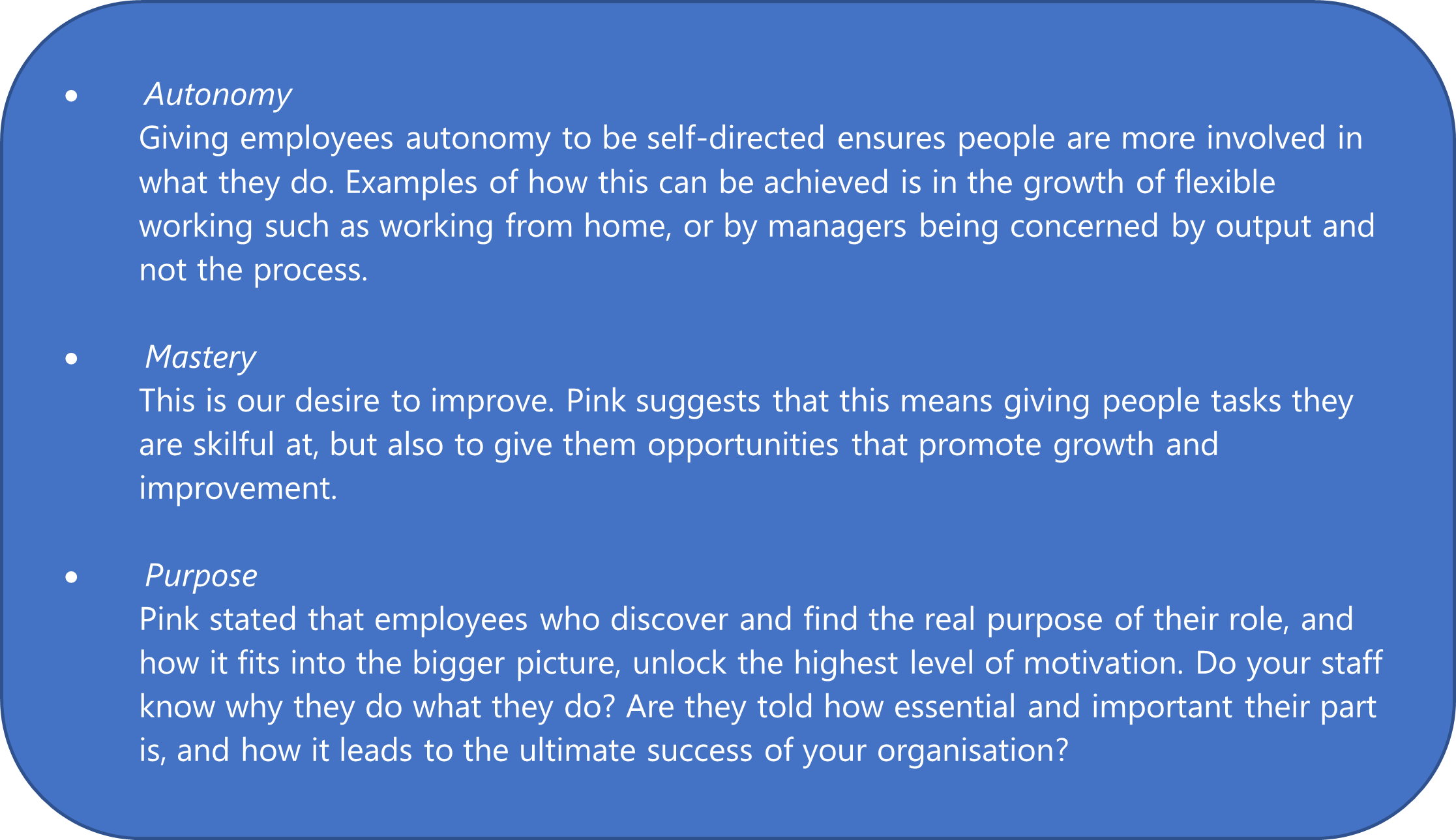A motivated team will perform better than an unmotivated team. Understanding how to motivate your staff can seem like a daunting task.
We cannot expect everyone to be motivated and engaged in the same way we are. With that said, as a manager, you must remember that everyone is watching you. Your influence is important.
Why is it important?
Motivated staff are key to an organisation’s success. The commitment they bring enables increased productivity, efficiency, willingness, discretionary effort, and positive working environments.
A Gallup poll shockingly discovered that only 13% of employees worldwide feel engaged at work. That is roughly one in eight of staff who feel psychologically committed to their work. With that one in eight people who are likely to be making positive contributions to their organisations. 24% are “actively disengaged”, meaning they are unhappy and unproductive at work – an attitude that can easily spread quickly to co-workers.
Theories on motivation
There are many theories on motivation such as Maslow’s Hierarchy of Needs, Herzberg’s Motivation Hygiene theory and many more. One theory that resonates with many is Daniel Pink’s concept in his book “Drive.” He argued that extrinsic motivators and rewards only increase productivity in straightforward tasks and in some circumstances inhibit creativity. Intrinsic motivators, he said, are far more effective. Pink suggests that you need to focus on three key elements to allow people in a modern workplace to flourish – they are: Autonomy, Mastery and Purpose.
How a manager can motivate
As well as employing Daniel Pink’s and other’s ideas on motivation, here are some easy and quick wins to motivate your people:
-
- Asking what motivates them and providing what they need
- Providing a well-deserved and tailored “thank you” (which is also completely cost free)
- Asking for input from your employees
- Showing appreciation
- Providing actionable feedback
- Setting goals and celebrating milestones
- Being positive
- Providing development opportunities
- Communicating honestly and frequently
- Showing respect
- Actively listening
- Creating a positive and enjoyable workplace environment
- Being approachable
In conclusion
We work with people; they are not resources. Taking a human-centred approach to employees and showing them that you value them and recognise their contributions, goes a very long way to increased motivation for your most valuable asset.









